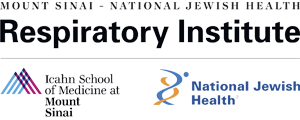What Are Sleep Disorders?
The Mount Sinai Integrative Sleep Center treats the full range of sleep disorders, including the following conditions:
- Obstructive Sleep Apnea (OSA): Periodic pauses of breathing associated with snoring and daytime sleepiness. This often results in poor quality sleep and daytime sleepiness. Most people are unaware that they have this problem but the health effects can result in hypertension, cardiac rhythm disturbances, stroke, and coronary artery disease. Treatments for obstructive sleep apnea include continuous positive airway pressure (CPAP), oral appliances, and surgery.
- Central Sleep Apnea: Periodic pauses of breathing occurring when the brain temporarily stops signaling the muscles in charge of breathing. This disorder often develops in people with certain medical conditions, such as heart failure and stroke. Treatments for central sleep apnea include positive airway pressure (such as CPAP and adaptive servo-ventilation) and supplemental oxygen.
- Circadian Rhythm Disorders: Disruptions in an individual’s 24-hour biological cycle. These conditions interfere with sleep patterns, possibly resulting in periods of insomnia and excessive sleepiness. Treatments for circadian rhythm disorders include light therapy, melatonin, and manipulation of sleep schedule.
- Insomnia: The inability to fall asleep or stay asleep. Poor sleep during the night can be a serious problem in itself and can result in decreased wakefulness, concentration, and performance during the day. There are many causes of insomnia, most of which can be treated. Unfortunately, many people do not realize that medical help is available for insomnia and they continue to suffer the effects of poor or diminished sleep. Treatments for insomnia include sleep hygiene and stimulus control, cognitive behavioral therapy, and brief use of hypnotic medications.
- Narcolepsy: Affects 1 in 2,000 Americans and characterized by uncontrollable attacks of sleepiness. In addition, some patients experience brief episodes of muscle weakness without loss of consciousness (cataplexy), total paralysis that lasts a few seconds to minutes usually at sleep onset or offset, hallucinations at sleep onset or offset, and disturbed night-time sleep. Treatments for narcolepsy include stimulant medications and medications that reduce attacks of cataplexy.
- Restless Leg Syndrome (RLS): Patients may have a creeping or crawling sensation, usually in the legs, but sometimes in the arms, which occurs at night or during periods of inactivity. These sensations are relieved by movement. Treatments for RLS include dopaminergic medications, iron supplementation, and treatment of other sleep disorders which may complicate RLS.
- Parasomnias: Sleep-disruptive events, such as violent movements, sleepwalking, nightmares, bruxism (teeth grinding), bedwetting, and sleep terrors. Treatments for parasomnias include sleep hygiene, removal of triggering factors, and occasionally medications.
